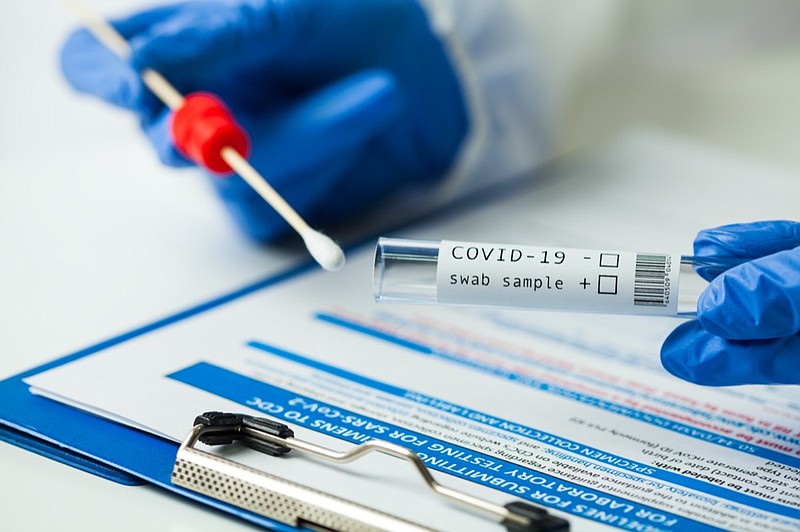This winter's spike in COVID-19 cases has more people than ever looking for tests. This has given rise to escalated issues with phony websites and suspicious in-person testing sites that look legitimate but appear to be designed to obtain your personal and insurance information.
Individuals in various parts of the U.S. have reported fake testing sites. Most of the fraud stems from questionable websites, however, some reports to the Better Business Bureau's Scam Tracker indicate issues at walk-in sites as well. Other questionable websites are purporting to have a relationship with a local pharmacy or medical group and offer to handle the information gathering and scheduling for your COVID-19 test.
(READ MORE: How to have a fraud-free New Year: 5 tips from the Better Business Bureau)
Many of these fake sites purchase online advertising so their website will appear in the search results when you look for a COVID-19 testing site in your area. Whether they claim to offer testing or are offering to schedule a test, typically you're asked to complete an online appointment form and provide personal, insurance and medical information. In some cases, individuals have reported that a small fee has been collected.
Those who have ended up on a fake site have reported that on the day of their appointment, the selected pharmacy has no record of their reservation, or they went to a "local testing site" and got swabbed, but never received test results, leading them to realize that they likely were tricked into sharing their personal information.
While we haven't seen reports of any fake testing sites in the Southeast Tennessee and Northwest Georgia area yet, reports of questionable sites reported to Scam Tracker have come from as nearby as Memphis, and are spread across the U.S.
One victim reporting their experience stated: "Not until I got home did I realize I provided WAY too much personal information. ... They used a swab of saliva and said I would be notified by email within 24 hours. It has now been 2 weeks no results, and they are still there doing COVID tests."
A Memphis resident reported a similar experience, stating: "Offers free rapid COVID testing. You give your name, address, driver's license and picture, email. You never get test results."
(READ MORE: How to keep your smartphone NFCs safe)
Here are some steps you can take to minimize the chance of falling victim to a fake testing or scheduling site:
- Understand the COVID-19 testing options in your area. The U.S. Centers for Disease Control and Prevention reminds consumers that no-cost COVID-19 tests are available to everyone in the U.S. at health centers and select pharmacies. If someone insists you pay for a test, especially if they claim it will cost you hundreds of dollars, it's a scam.
- Only get tested at authorized testing sites or health centers. Visit your state and local health department's websites to find an authorized testing site in your area.
- Watch out for lookalike websites. Scammers have become adept at creating websites that look just like websites belonging to well-known, trusted businesses. Before entering your personal information to an online form, make sure the website you are visiting is secure and there are no misspellings or unfamiliar names in the URL bar.
- Be wary of unsolicited callers and messages. No legitimate company or health clinic will call, text or email you without your permission. If you get an unsolicited message from someone, don't give the caller or sender any personal details unless you can fully confirm it's from a legitimate source.
- Read the fine print on any documentation you are asked to sign. Question where the personal information is being kept as well as if it is secure, what lab is processing the results, and read the agreement carefully before signing. If anything within the agreement does not seem right, leave and find another testing facility.
(READ MORE: Decluttering? BBB offers tips for selling your used items online)
In addition to the concerns about testing sites, the Food and Drug Administration has reported fake and unauthorized at-home testing kits popping up online.
Fortunately, a site was launched this week to handle the distribution of four free COVID-19 test kits per household as part of an agreement between the White House and an authorized manufacturer.
The website launched on Tuesday and you can order your free kits at covidtests.gov.
Should you choose to order and pay for kits from another business, you can make sure the home test you're buying is authorized by the FDA by checking the FDA's lists of antigen diagnostic tests and molecular diagnostic tests.
Michele Mason is president of the Better Business Bureau for Southeast Tennessee and Northwest Georgia.
